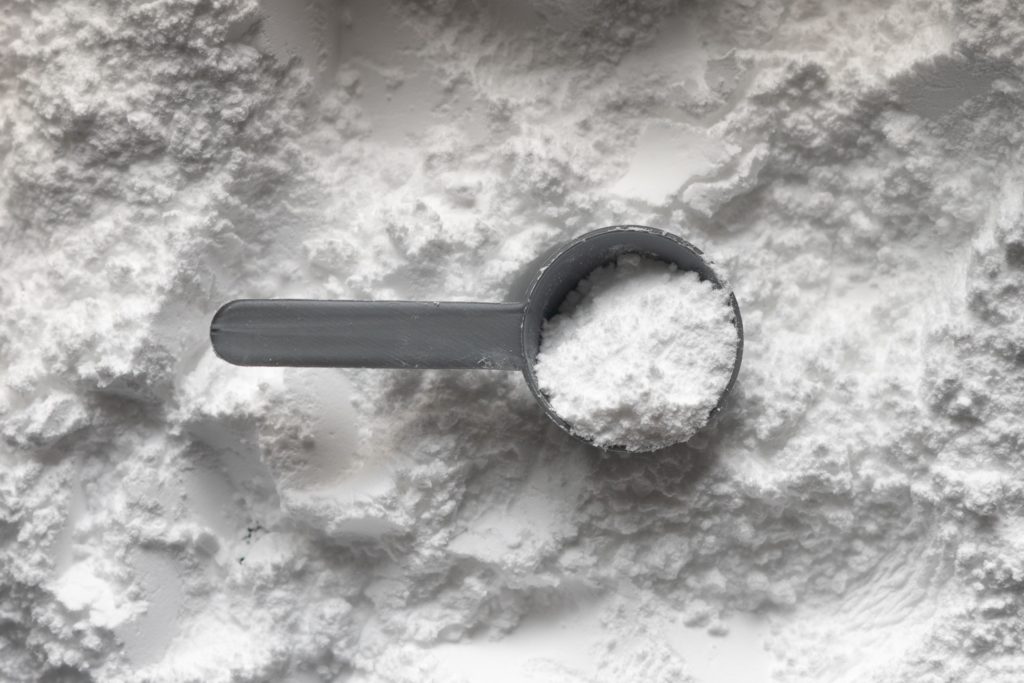When talking about protein supplements, it is common to think about body builders and people trying to gain muscle mass as the main users. However, many people use protein supplements for different reasons.
Using Protein Supplements for Different Reasons
Different people and athletes may have different intentions when consuming protein supplements. For example, runners do not usually want to get more muscular, but they want to keep their lean muscle mass and muscle strength. Moreover, a person might want to take protein supplement to keep a certain amount of weight on for sport specific goals. Others might want to use protein supplements as a replacement for natural food sources of proteins. To some, it’s more convenient to take a shake rather than a full meal. Ultimately, to assess whether one needs to take protein supplements, it is important to keep in mind one’s objectives.
The Physiological System (1)
When discussing protein metabolism in the body, it is important to understand that the metabolic process in which muscle strength and size can increase happens when muscle protein synthesis is greater than muscle protein breakdown. This way of looking at protein metabolism simplifies the evaluation of the need for protein supplements.
Despite the above statement, exercise is a direct stimulant of muscle protein synthesis and what makes it a bit more complex is that exercise also increases the rate of protein breakdown in muscles. This fact helps us understand the need to have food intake after exercise. Without any protein intake following exercise, the body will have more breakdown of muscle protein compared to muscle protein synthesis.
The main way in which food intake will cause the muscle to grow in strength and size is through the improved distribution of amino acids to the muscles. Amino acids contribute to muscle protein synthesis which can translate to muscle strength and muscle size.
Ingestion Timing of Protein Supplements (1)
“A protein supplement taken immediately after exercise would be anticipated to have a greater effect on muscle protein synthesis than if it were ingested at some later time”
Wolfe, 2000
The time at which protein ingestion happens is another critical factor that affects the effectiveness of stimulating muscle protein synthesis. Not surprisingly, it appears that taking protein supplementation after an exercise bout is more effective than at rest. When taken shortly after an exercise bout, protein supplementation will have a greater impact on your muscles.
Risks (2)
The recommended daily allowance for protein intake in the USA for healthy people is 0.8g of protein per kilogram of body weight per day in adults and 1.5 g protein/kg body weight/day for children and 1.0 for adolescents. Yet, athletes and more physically active individuals may need closer to 1.4 – 2.0 g/kg/day due to the demands that their activities place on their bodies. Even though a higher intake can be beneficial for some individuals, unnecessarily high protein intake does come with important risks.
Some of the risks reported on people with long-term high protein intake included:
- Disorders of bone and calcium homeostasis
- Renal function complications
- Increased cancer risk
- Disorders of liver function
- Progression of coronary artery disease
Now, these risks are quite severe, and they were observed only when the protein intake exceeded the recommendations of daily intake (stated above). Do not be overly alarmed by these risks. Taking daily protein above the daily recommendations does not directly signify you will suffer from the aforementioned outcomes. However, it is important to consider the consequences that one’s intake can have on the long-term.
The main exception to these risks is in aging populations. To protect them from sarcopenic muscle loss, the elderly should have a protein intake closer to 1.5g/kg/day. More long-term studies are needed to provide the elderly with an optimal daily intake recommendation.
Benefits of Protein Supplements (3,4,5,6)
Some of the benefits of protein supplementation include:
- Delayed onset muscle soreness improvements
- Muscle mass and strength gains
- Decrease in fat mass
- Physical performance and cardiometabolic health in obese individuals
- Soy and milk protein intake can reduce systolic blood pressure
“Twenty-four college-aged men who consumed 48 g of whey isolate every day showed that lean body mass, muscle mass, strength, and power all increased and fat mass decreased”
Joy et al., 2013
A note on plant-based protein supplements
Plant proteins can be a great alternative to non-plant-based proteins, such as whey isolate. However, when looking at the effectiveness of protein supplementation, whey isolate typically leads to better results with lesser dosage. The main reason for this possibility is that plant proteins will usually have less essential amino acids. It can mean that plant-based proteins may fail to meet the requirements of a full protein. To better understand plant-based proteins, read our guide to plant-based proteins.
The good news for those interested in plant-based proteins is that an 8-week study with college aged males performing resistance training found that there were similar improvements in recovery and training-induced adaptations when comparing whey protein isolate to rice protein isolate. Basically, the plant-based protein (rice) and animal protein (whey) both saw improvements on measures that include lean body mass, fat-mass (decreases), power and strength. Such findings suggest that plant-based proteins can have positive effects, comparable to the positive effect of whey protein.
Unfortunately, the 8-week study is relatively short-term, and the long-term effects were not possible to evaluate. However, a 9-month study evaluated soy compared to whey protein. In this longer study, whey and soy protein supplementation were found to improve strength. However, the whey protein supplementation was found to provide greater gains in lean mass.
Protein Type Matters (6)
As explained above, there seems to be better results for lean mass gains when consuming whey protein compared to soy protein. In fact, another study found that fat-free milk can provide greater protein accretion than soy protein. Clearly the type of protein taken can affect the expected outcome.
Whey and casein protein have also been examined. They both have different digestion rates and absorption properties. Whey protein ranks better on both measures. When comparing both further, whey increases lean-mass and muscle strength while decreasing fat mass more effectively than casein.
Now, this explains that there are differences in the potential effectiveness of different types of proteins. Yet, it is important to note that, despite the protein type, the outcomes of lean mass, muscle strength, and fat decrease are positive regardless of the protein type.
Disadvantages of Protein Supplements (4)
When discussing protein intake as a factor in health, sport performance, and other goals, we often hear about a “low-carb/high protein” diets. Interestingly, research has shown that this kind of diet can lead to a greater acid load on the kidneys, greater risk of stones, diminished calcium balance, and increased bone loss. These may be extreme, but the short-term interventions point to these risks.
Part of the reported disadvantages associated with protein supplements may arise because both adults and adolescents have historically overused them due to the benefits they seek. Most notably, men and younger exercisers were found to focus on the performance enhancement benefits and muscle building properties compared to other health-related products. This brings us to question which goals are best aligned with protein supplementation? Maybe some goals promote better use or dosage of protein intake while other goals promote overuse?
Whatever the answers may be, the disadvantages of protein supplementation are alarming. Protein supplements should always be taken with care.
Protein from Supplements or from Food – Which is better? (7)
Is it necessary to take protein from supplements or can people get their protein intake from foods only?
To begin with, different diets make it easier or harder to meet protein requirements. For example, the Western diet makes it easier to get the recommended amounts of protein compared to a Mediterranean diet. However, the Western diet makes it more difficult to reach the right macronutrients or antioxidant needed. In cases where food intake cannot provide the right amount of protein, protein supplementation may be a good alternative to fill this void.
“Those who already have a sufficient level of daily intake with diet alone are the same individuals who also supplement their diet.”
Passariello et al., 2020
The fact that people who tend to use protein supplements are already the ones who get enough protein intake from their food intake is puzzling. This highlights the need for people to know about protein intake and its benefits when consumed in the recommended dosage. It also shows that if you are a person who is taking protein supplementation, chances are, you might already be getting the appropriate amount from your food intake. Be mindful of such a phenomenon!
So, What is the Answer?
As highlighted above, there are many benefits from protein supplementation including muscle strength, size, power, and lean mass improvements. There are also many disadvantages when protein is over consumed. The disadvantages include stone formation and poor calcium balance.
Overall, the need for protein is essential and bodily requirements can be met through proper food intake. The need for protein supplements is not obvious. Most who are aware of the benefits of protein are likely already eating the right amounts for their body’s needs. The marketing and societal pressure to consume supplements are big factors for their prevalence. Before you purchase protein supplements, be aware of your food intake and question your need for it. We also recommend to seek guidance from a certified dietician if you are unsure.





